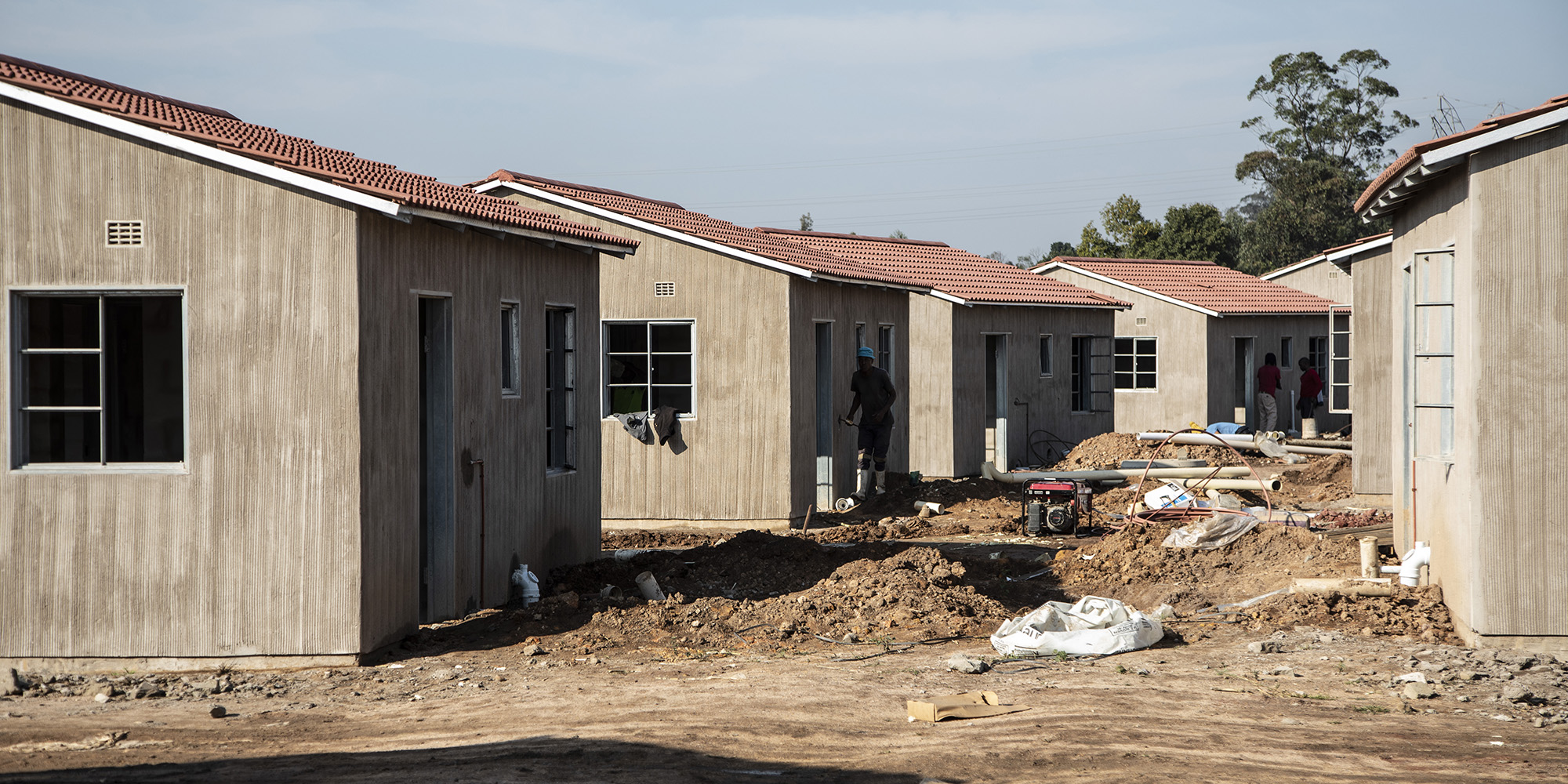Land in South Africa remains contested. A key flashpoint is land invasion in urban areas as people living in township backyards seek a place of their own.
Section 26(1) of the Constitution states: “Everyone has the right to have access to adequate housing.” Yet, 26 years after the Constitution was adopted, the attempt to orderly manage South Africa’s human settlement has failed. Informal settlements now all but ring the cities and about every town, mine or other centre of economic activity.
Informal settlements are mostly established on land that is unused or otherwise marginal. What protects land from occupation is not a title deed but what is happening on it; land that is being actively used is very rarely occupied. But even when land is unused, land owners — often municipalities or other government entities — seek to enforce ownership against occupiers rather than cede their property. Eviction proceedings follow.
The laws regulating evictions— the Prevention of Illegal Eviction from and Unlawful Occupation of Land Act (PIE) and Extension of Security of Tenure Act (ESTA) (in the case of farm workers) — were drafted to enable section 26(3) of the Constitution which states: “No one may be evicted from their home … without an order of court…” One aspect courts must consider before granting an eviction is the availability of “suitable alternative accommodation or land” for those evicted. This is an important consideration in a country as unequal as South Africa.
Read in Daily Maverick: “Cape Town’s emergency housing programme is ‘arbitrary’ and unconstitutional, says court”
A home is a fundamental requirement for family life, and for social stability.
The provision of alternative accommodation generally falls to municipalities. These are increasingly collapsing under the burden of inadequate central government funding, mismanagement and corruption.
With the country’s housing programme falling ever further behind, municipalities increasingly rely on offers to provide “temporary emergency accommodation” when joined to eviction proceedings (not infrequently their own).
This offer is sugar-coated with promises, without timelines, of permanent settlement in future housing projects for South African citizens entitled to the government’s housing subsidy.
Beyond basic
With the completion of low-cost housing projects receding into the distance, this emergency accommodation becomes all but permanent.
The typical conditions are beyond basic. A 24m² shelter of corrugated iron on a stand of 120m², each Zozo just three metres apart, water from JoJo tanks that often run dry, and chemical toilets. Dust blows in winter and shacks leak in summer thunderstorms.
If these were truly “temporary arrangements”, they could be condoned. But as months turn to years and years into decades, we are creating dystopian warrens of poverty, addiction, child malnutrition, dysfunctional families and the tinder of social conflagration.
Visit Daily Maverick's home page for more news, analysis and investigations
And here’s the kicker: such “emergency” alternative accommodation typically provides less space, dignity and economic opportunity than the squatted stands on which occupiers had built their homes. The tiny stands and crowded rows offer almost no opportunity for families to supplement income with informal economic activity, whether vegetable gardens, chicken coops or recycling.
If we wanted a policy that would keep those at the very margins of our society in perpetual poverty, the establishment of these “permanent-temporary slum settlements” would be hard to beat. Indeed, the outcome is little different to the forced removals of apartheid.
Dramatic shift in policy
There are no easy answers to the land question, but a start would be to acknowledge that we cannot build houses for all. The chimera that “emergency temporary accommodation” is an adequate response must be abandoned.
Unless there are good reasons that land invaders cannot remain (and bare ownership is not enough when balanced against human dignity and social stability) then they should be allowed to remain where they are until permanent sites are, in fact, available.
Read in Daily Maverick: “ANC declaration on land highlights RET retreat, but offers few solid solutions”
Further, since we cannot build houses of bricks and mortar for all who need them, we need a dramatic shift in housing policy. Unused land in urban areas should be released for occupation as stands with title deeds for a nominal charge.
Importantly, these stands should be large enough to allow their owners to supplement income and build livelihoods that the formal economy cannot. Services can follow. Given the security of ownership, people will do the rest themselves. DM/MC
David Dickinson is professor of sociology at Wits University. Louise du Plessis is the manager of Lawyers for Human Rights’ Land and Housing programme.




